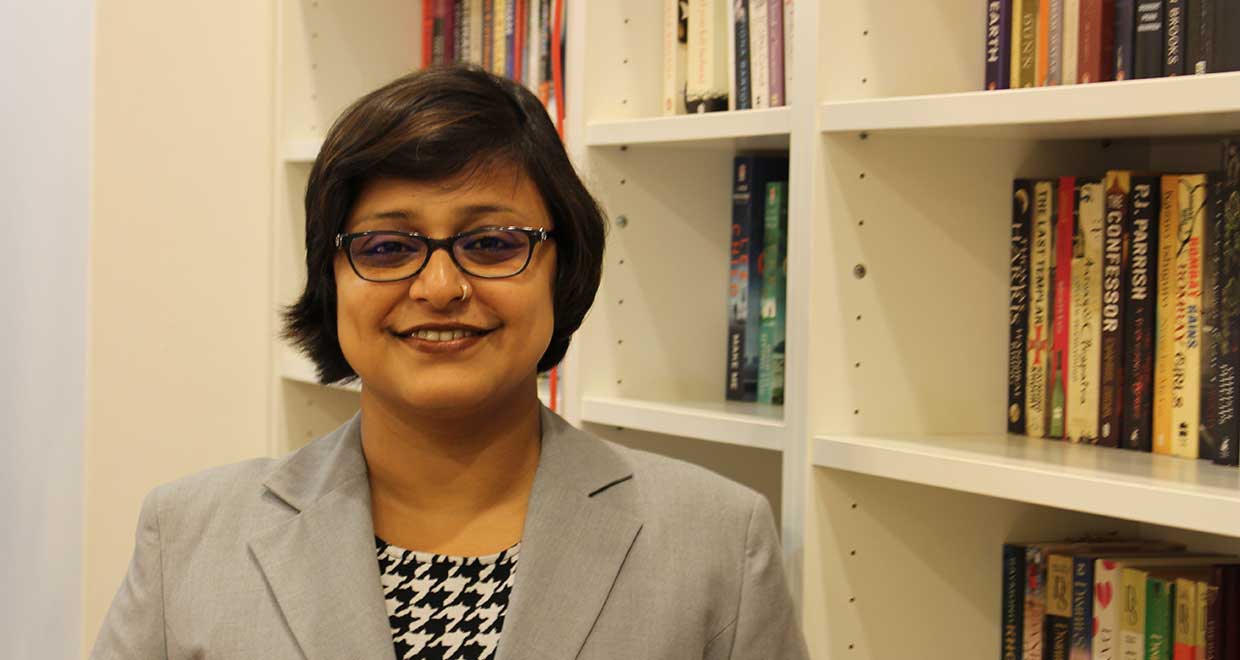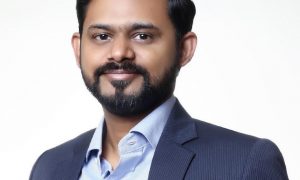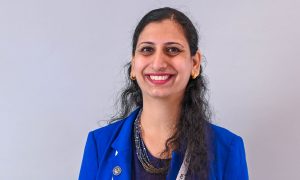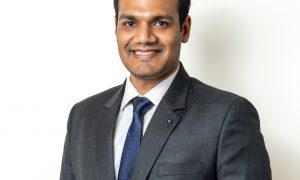Sudeshna Chatterjee graduated from NALSAR, Hyderabad, in 2005. After successful stints with Luthra and Luthra, and Sarthak Advocate and Solicitors, she went on to pursue her Masters at NYU@NUS, with a focus on corporate and financial services law. She’s currently Head of Legal-Asia, at Aggreko’s Power Solutions business, where she handles general corporate advisory, assists in setting up corporate structures, assists in cross border transactions, acts as lead negotiator and assists in M&A activities.
In this interview we speak to her about:
- Her time at NALSAR
- Her experience in business law
- Studying at NYU@NUS
How would you like to introduce yourself to our readers?
I am a business lawyer with a commercial bent of mind. This entails that I wear multiple hats at all times – when I am evaluating and mitigating risks, I put on the lawyer’s hat and when I am taking a call on whether to go ahead with a transaction or not, despite the risks involved, I put on the business/ commercial hat.
What motivated you to pursue law?
My father had studied law, but he never practiced it. Being an avid reader I discovered Erle Stanley Gardner’s Perry Mason, Harper Lee’s Atticus Finch and John Grisham quite early on, and as clichéd as it might sound, these piqued my interest in law. When I wanted to sit for the entrance exams (there was no CLAT at that time) there was an initial resistance from my parents. The preferred choice for a majority of students (and more importantly, the parents) in Bengal at the turn of the century was to undertake further studies in engineering or medicines only; anything other than these subjects was an anathema. However, I managed to convince my parents and joined NALSAR.
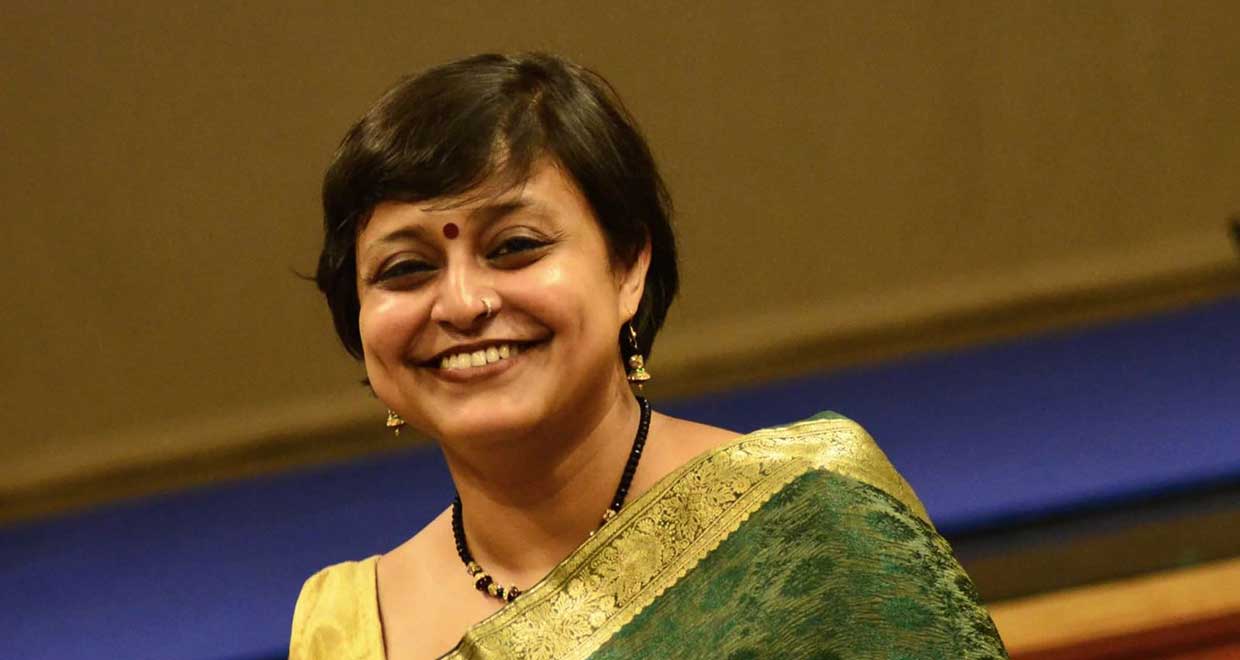
Tell us something about your time at NALSAR.
I was part of the third batch of students at NALSAR, which was a new and upcoming university in the year 2000. Coming from Bengal and Bengali speaking culture, the cosmopolitan culture of NALSAR was quite a bit to take in at the beginning. However my seniors were lovely and adjusting to the new environment was no trouble. I enjoyed my classes (which used to be conducted then within the girls and boys hostels as the academic blocks had not yet come up until late 2001) – especially criminal law, intellectual property law, corporate law, administrative law and transfer of property. The class of 2005 had a healthy dose of scepticism coupled with an unquenchable appetite for questioning, which was an interesting mix to be a part of.
There were not too many activities apart from moot courts during my undergraduate years. I attended a couple of inter-class moots and quickly realised that I was not interested in moots. I enjoyed debating in school; however there were no formalised debating societies at that time. Sometimes a few of us would debate on topics relevant to the prevailing times. I also wrote a column for ‘Edict’ which was a student’s magazine that one of my classmates had started, for a little while. My free time would be spent reading books, listening to music and generally hanging out with my friends.
Could you tell us about the internships you took up, and what you learnt from those experiences?
I undertook a variety of internships while at NALSAR. I appreciated that internships were a way of exploring my interests.
I took an internship with Mobile Creches, Delhi where I got to work with property developers and builders providing safe creches for the children of construction workers. I also took an internship at the National Innovation Foundation, Ahmedabad under the auspices of Professor Anil Gupta where I worked with grass-root innovators. Both these internships satisfied my desire to give back to the society and were enriching experiences.
I took a number of internships with Senior Advocate, Mr. Dinesh Mathur, who practiced criminal law at the High Court of Delhi. During those internships I learnt that criminal law was not only about the victim, as was taught in law school. The first duty and obligation of the lawyer is towards the client, who may or may not have been the victim. This shift in paradigm from victim-oriented jurisprudence to perpetrator-oriented jurisprudence made me appreciate criminal law and the criminal justice system.
Securing internships at law firms was very difficult for me because I neither had the network nor the clout. Further, NALSAR did not then have a robust internship committee that they have now. I managed to get an internship with Khaitan & Co., Kolkata after multiple follow ups. At Khaitan, I worked with the litigation practice and assisted with research, drafting petitions and affidavits. Despite working with the litigation team and spending time in court, this internship gave me a flavour of what it would be like to work in a law firm.
What advice would you give students in avoiding a decision paralysis?
It is always good to have more choices rather than few, however if the variety of choices leads to procrastination, then such choices are more detrimental than useful. The best way to go about, in my opinion, is to do proper research, speak to seniors, friends, mentors, and whoever the person can rely on, to gather information. There is no easy answer for this and everyone must find their own equilibrium. The ultimate choice has to be their own. It may or may not be the correct choice – however it is better to have tried and failed, than never to have tried. I would say, don’t be afraid to explore. No amount of knowledge or experience ever goes waste, although the benefits may not be apparent immediately.
Not everyone has the same circumstances, so the parameters for considering next steps after graduation may vary depending on that. Some prefer to join the profession, through campus recruitment into law firms, with senior advocates or in-house, whereas some prefer to finish their higher education and dive into a masters’ degree immediately. My suggestion to law graduates would be to consider what they want to do in the long run. I appreciate that many may not be very clear about their choices and in such circumstances, it is always more fruitful to practise for some time before going in for higher studies. This allows for more mature understanding of specialised subjects when they go for their masters’ degree.
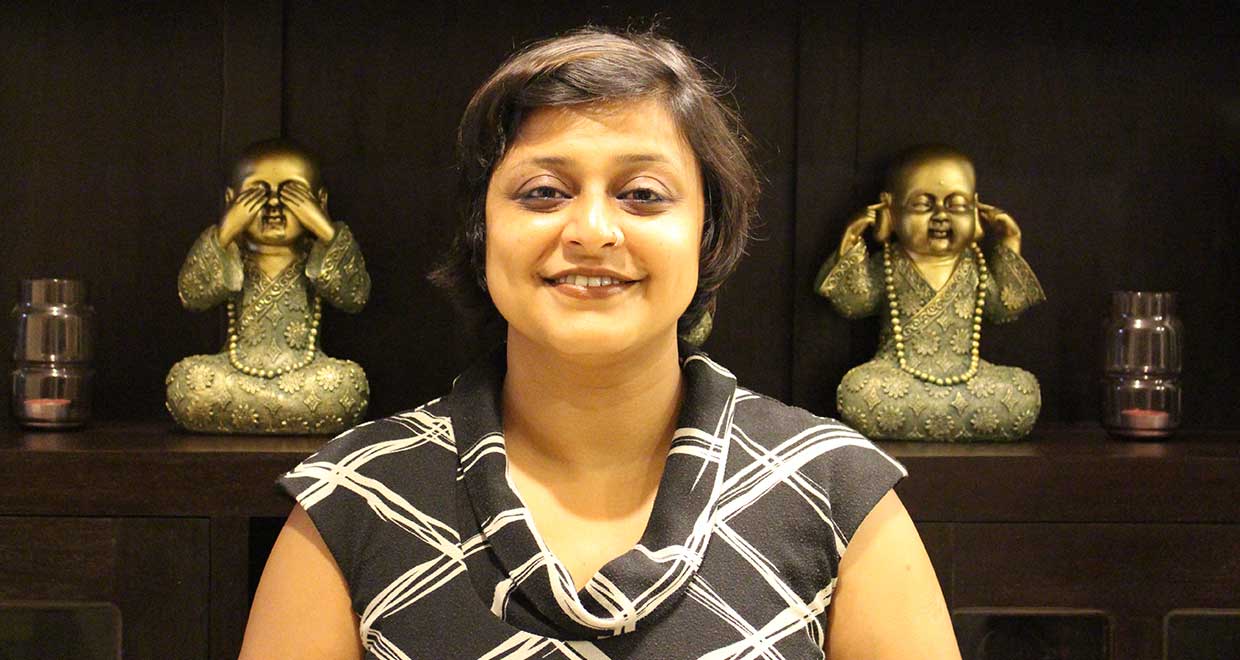
Tell us about your early professional experiences at Luthra & Luthra.
On the first day of campus recruitment I had two offers, one from Luthra & Luthra, Delhi and the other from one of the big four accountancy firms at their office in Bangalore. While considering which offer I accepted, I bore in mind that L&L may be a better fit as it was a full service law firm and I would have the opportunity to explore different practice areas. With the other offer, I would have been ‘pigeonholed’ as a tax practitioner (which I was not convinced that I would enjoy). The availability of choice tipped my decision to accept the offer from L&L.
In retrospect, joining L&L was the best decision that I made. It is a great place to work in and Mr. Luthra and the team of senior partners bring passion and excitement to work. I had wonderful colleagues and work was exciting and challenging. I started with the trade law practice, followed by working with the intellectual property team and finally settling into the securities and equity capital markets practise at L&L. I was given the choice of moving teams so that I could explore what made me tick. I have always been grateful to Mr. Luthra for that.
What was the application process like for the NYU/NUS programme?
The application process for NYU@NUS program is just like any other masters’ degree program with requirements such as statement of purposes, academic and work references and a specific write up about oneself other than the statement of purpose to show background and whether suitable for scholarship. There were a number of documents (educational qualifications, various certifications etc.) that was required to be submitted along with the applications. The administration at NALSAR was very helpful in getting the documents authenticated and sent across for submission purposes.
During the final year at NALSAR I had applied and had been offered a seat at the Queen Mary University of London, however I could not take it up at that time. Doing a masters’ degree was always on the cards and I just had to find a suitable time to pursue it. I had relocated to Singapore for personal reasons and thought that the time was ripe to undertake the masters’ degree. However I was not very keen to move out of Singapore to pursue higher education. I was considering NUS but when I found out about the dual degree that was offered by NUS@NUS, the option to undertake the degree from two prestigious universities that are NYU and NUS made more sense. The courses panned from complex securities law to challenging international law, to oversight of business laws, to anti-corruption laws, taught by illustrious professors from both NYU and NUS, hence there was no reason for me to look further than this degree.
What was the experience at NYU@NUS like?
NYU@NUS was a great experience – enriching and fulfilling, both from an education and a personal perspective. The class had all of 30 plus students from eighteen countries, so there was a diverse bunch of students with varied legal education and work experiences. The term started in May, the first three months were NYU subjects and the faculty flew into Singapore for intensive classes. The NUS session started in August followed by NYU session in December and ended with a mixed-bag of NYU and NUS classes between January and March. The NYU@NUS course allowed students to top-load credits so a couple of students finished their entire NYU and NUS credits by December.
It was an amazing experience to match wits from lawyers around the world, spend nights in the study rooms and at the library, work on multi-party negotiations which were taped and dissect performances thereafter, paper submissions, presentations etc. The list is endless. It really tested my time management and prioritizing skills to the fullest, not to mention the patience it took to concentrate on studies and not get distracted.
It will be completely unfair to just speak of the education and not mention the personal relationships that I forged in less than a year. I now have friends all over the world – from places like Ecuador, Bogota, Berlin to Zurich, Bologna, Paris and Quebec. I think these friendships have been enriching and have added to the experience that is NYU@NUS.
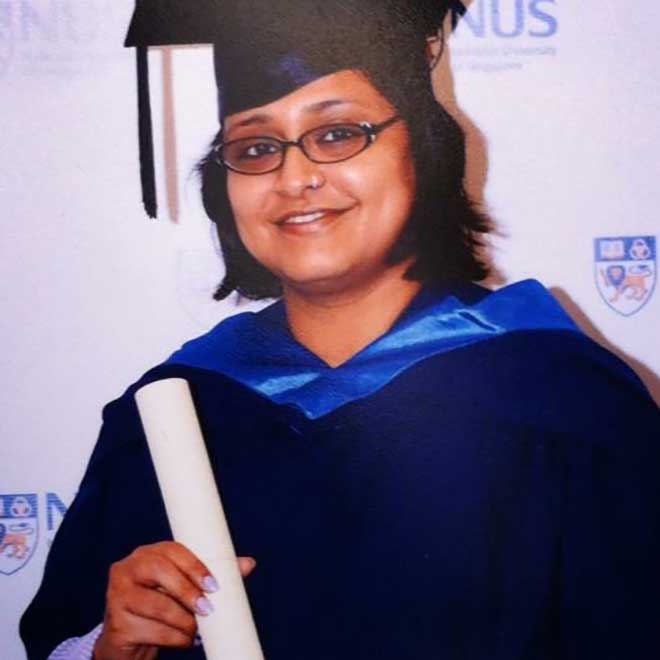
How did you come to take up a position with Aggreko?
Aggreko happened while I was still undergoing my masters’ degree. I was approached by a legal recruiter in Singapore. I had never worked in-house; hence I was circumspect about the role and its requirements. However as I still had about three months left to complete the course, I thought it would be a good experience to give it a try and if it did not fit, I would still have time to explore other opportunities in Singapore.
Working with Aggreko has been very satisfying. Since I was a securities lawyer and had not worked in projects, it was very important for me to understand the product of the company, the space it functioned in and what was required of me on a day to day basis. This entailed a detailed learning on the technical aspects which brought me up to speed with generators, load banks, temperature control equipment, how they function, what are the risks in the business and how to mitigate them. Educating myself on the legislative framework in the region was relatively easier.
There has not been a single dull day at Aggreko. I have advised on tenders, negotiated multi-million dollar contracts and been part of events like the Formula 1, Cricket World Cup and the Olympics, where Aggreko provides primary or standby power. I have also undertaken compliance checks to ensure that the region is always ethically and legally compliant. The thing that I enjoy the most is seeing a transaction from the beginning to the end. I get involved at the start of a deal and handhold the relevant stakeholders until the deal is done – providing legal and commercial advice along the way. It is important to note here that being an in-house lawyer, I am required to provide legal advice without caveats – this requires clarity of thought and a complete appreciation of the risks involved and ways to mitigate it. This is both challenging and invigorating.
As the Head of Legal – Asia at Aggreko, what does a typical working day look like for you?
Aggreko is a London-listed FTSE 250 company and the world’s largest temporary power provider. As its Head of Legal for the Asia region, I am responsible for about fifteen countries in the region. I travel quite a bit, depending on the business requirement to support the power project team with negotiations and tenders. Unless I am travelling, my typical day would start with a brief meeting with my team where we would take stock of the deliverables for the day including but not limited to contracts, standard documents, interpretation of internal policies and negotiations. Since the business involves temporary power, some of the power requirements are on an emergency basis, thus requiring agility and quick turnaround of documents to ensure that the business requirements can be satisfied.
I also get involved with the commercial discussions for various power projects that we set up for public utilities. This includes liaising with the finance and the senior management teams to prepare white papers, project risk summaries and discussions on commercial models to understand the viability of such projects. Unlike popular belief, my work does not have fixed 9AM-5PM timing because emergency power could be required anytime. Hence there are days when conference calls and turnaround of documents may go on until the wee hours in the morning.
On what parameters do you choose the projects you work on?
Although there are no fixed parameters to choose the projects that I work on, I usually end up working on tenders and multi-party negotiations. I have a lean but competent team which takes care of daily queries, standard contract reviews, negotiations, due diligences, among others, which enables me to focus on the challenging negotiations and the complex tenders.
What are the challenges and learning opportunities that you are faced working heading Aggreko Legal?
There have been challenges and opportunities both while heading Aggreko’s legal department in Asia.
Some of the challenges are/have been:
- Working in-house is different from working in a law firm. One needs to first reorient oneself that instead of being the revenue centre, they are now the cost centre. This means that budget is important and I do not have the luxury of engaging external counsels on every deal that I undertake;
- Culturally each of the countries where I advise in is different. This requires me to be sensitive towards different sets of cultures, protocols and customs;
- Time zones and language: travelling across several countries on a frequent basis means that I have to constantly make adjustments to suit time and language differences.
The opportunities provided by these hurdles are:
- Undertake in-depth commercial analysis of the business in order to provide innovative solutions and negotiate contracts successfully;
- Working in developing countries where power is scarce and then being able to deliver power in record time gives immense satisfaction, high profile events like the Formula 1, Commonwealth Games, World Cup and the Olympics adds to the excitement.
The trick of sustaining oneself in this dynamic work environment is to understand what I can control and take charge of it and to let go of things I cannot control. I have a clear understanding of the deliverables from my stakeholders and I never agree on unreasonable timelines as that builds false expectations. This allows me to prioritize the work and ensures that my stakeholders know what they can expect from me and my team. This also ensures that I am not under pressure for things that are not under my control.
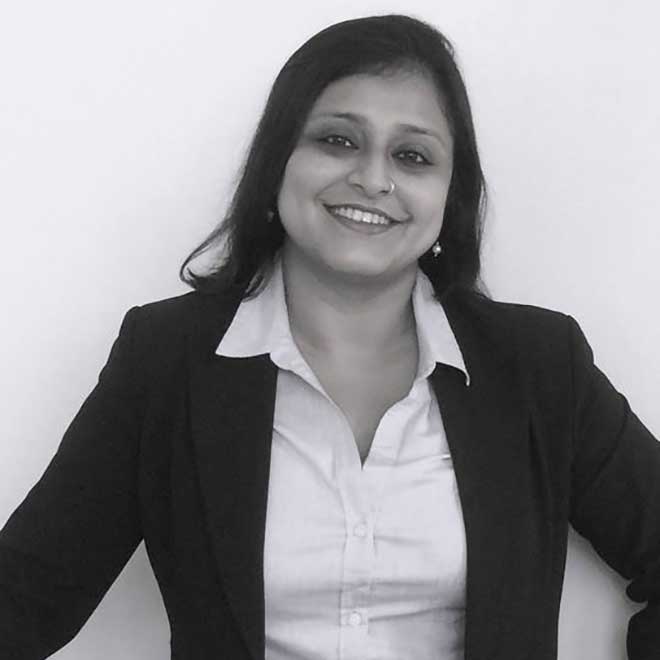
How do you manage your time between your professional and personal interests?
I am a meticulous planner where my work is concerned, hence I am more proactive than reactive in the work I do. This allows me time and flexibility to dabble in my new-found passion for photography. I travel quite a bit in and around the region, so I carry my camera along with me and have started photo-blogging the places I visit through Instagram. Further, my kindle is my new best friend and allows me to be on top of my reading lists of thrillers. I am also regularly involved with the Bengali Association of Singapore and its various cultural activities.
Given the dynamic nature of the field you practice in, how do you keep yourself updated about the latest developments in the law?
Read, observe, practice and read some more. Speak to law firms, legal contacts, discuss, subscribe to legal tools and then read some more. As I stated earlier – not knowing is not an excuse.
What advice would you like to give our readers, who are mostly law students and young lawyers?
I have the same advice for aspiring lawyers and to practicing lawyers – ‘stay hungry, stay foolish’. Our core skills as lawyers never change. Changing ones area of practice is only difficult if you don’t have faith in your abilities to re-invent yourself.

